
All categories
Featured selections
Trade Assurance
Buyer Central
Help Center
Get the app
Become a supplier

(20063 products available)

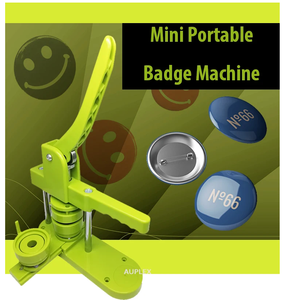
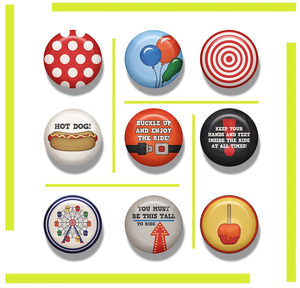
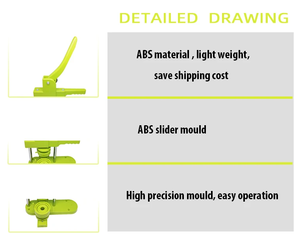
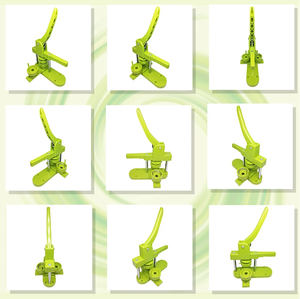





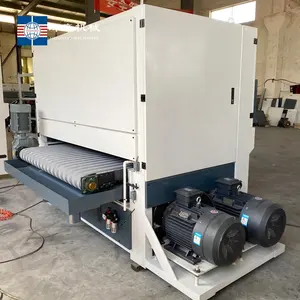



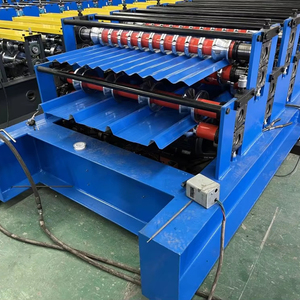
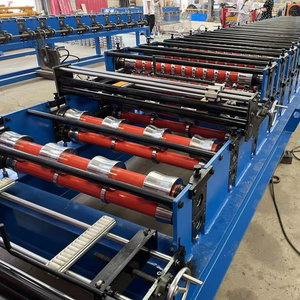




Market Overview: The expander metal sheet machine market is poised for significant growth, reflecting broader trends in the metalworking machinery sector. According to IBISWorld, the Metalworking Machinery Manufacturing industry in the U.S. has faced challenges, with a revenue decline at a CAGR of 1.5% to reach $37.2 billion over the past five years. However, there remains a strong demand for specialized machinery, particularly as industries like automotive and aerospace increasingly require precision and efficiency in metal processing. In 2023, the market for metal machining scrap equipment was valued at approximately $1.7 billion globally, with projections indicating growth to $2.0 billion by 2030, at a CAGR of 2.0%, highlighting a trend towards optimizing metal scrap processing that aligns with the capabilities of expander metal sheet machines.
Industry Insights: The driving forces behind the demand for expander metal sheet machines include the rising emphasis on sustainability and efficient resource management in manufacturing. As companies face escalating raw material costs, the ability to process metal waste effectively is becoming crucial. Technological advancements in automation and real-time monitoring are enhancing the operational efficiency of these machines, making them indispensable in modern manufacturing environments. Major players in the market are adapting to these trends by investing in innovative solutions that streamline metal processing. With the U.S. market alone estimated at $472.3 million in 2023, and significant growth expected in regions like China, which is forecasted to expand at a 4.1% CAGR, the expander metal sheet machine market is well-positioned to capitalize on these emerging opportunities.
Interstice variation refers to the space that x- rays are diffused through in between rods; thus, nomenclature convex and concave used to indicate outward and inward bulging of the sheet respectively Machine types used to expand metal sheets can be grouped in two main categories, i.e. manual and hydraulic.
Moreover, metal sheet expanders can also be categorized based on their design and construction Features. below are some more types to note:
In addition, there are also high capacity, easily production efficient metal expanders, which are directly used to support the production lines and low capacity models offered as stand-alone units that have worked perfectly with coil up to 2000mm.
The specification of a metal sheet expander machine will always vary depending on the type and model. However, some essential specifications are critical for operating and choosing the right machine for a given task. These include the capacity and size, cutting force, power requirements, pinned holes diameter and pitch, as well as the materials and thicknesses' range.
When it comes to the maintenance of an expander metal sheet machine, regular maintenance is essential for ensuring the machines work properly and for preventing breakdowns and repairs. Some of the maintenance techniques include regular inspections, checks for signs of wear and tear, lubricating moving parts, cleaning, recalibrating for expansion accuracy, and timely replacement of parts.
Architectural Applications:
In architecture, metal sheet expanding machines are very popular. They are commonly used when building facilities for architectural and structural purposes. Builders want lightweight but sturdy materials. Expanded metal meshes fit the bill perfectly. They provide strong support for structures like walkways, balconies, roofs, and fencing.
Automotive and Aerospace Industries:
The automotive and aerospace industries also make use of expanded metal sheet machines. In these industries, the metal expansion machines are used to make lightweight yet strong meshes for vehicle, aircraft, and spacecraft bodies. The meshes help to reduce the overall weight of the machines without compromising strength and safety.
Protective Barriers:
Metal sheet expanding machines are commonly used to make protective barriers. The machines can produce the perfect size and shape for protective barriers around machines or work areas. After all, they are super sturdy and offer excellent protection.
Egg Crate Packaging:
Expanded metal machines can also be used to produce egg crate packages. They create the desired shapes to hold and protect eggs during transportation and handling. The crates absorb shocks and prevent cracking. Plus, they can be recycled, making them eco-friendly packaging solutions.
Filtration Screens:
Filtration screens are devices used to separate and filter materials. Expanded metal machines create them. The screens are used to sieve solid, liquids, and gases. They allow certain substances to pass through and prevent unwanted ones from getting through. Expanded metal machines are commonly used to make filtration screens for water treatment, oil processing, and chemical factories.
Ventilation Grilles:
An expanded metal sheet machine can also make ventilation grilles. Meshes are ideal for allowing air to flow freely while preventing people or objects from gaining access. Expanded metal mesh machines make ventilation grilles for buildings, automotive, HVAC systems, and more.
Foundry and Casting Molds:
Foundries and casting factories can use expanded metal machines to produce molds. The expanded metal molds are very useful for pouring liquid metal into complex shapes. The machines offer good support and control over the solidification process. As a result, casting accuracy and repeatability are improved.
There are several things to consider before purchasing or selling a metal sheet expanding machine.
Specification and performance
Buyers should evaluate the machine's specification. Things like working thickness and width, feeding speed, the precision of the expanded meshes, and the level of automation should be looked at closely. The performance of the machine should be compared to these specifications. This comparison will help buyers choose a machine that fits their production requirement.
Production capacity
Metal expander machines have different production speeds. This reality makes it possible for buyers to choose a machine that fits their projected production volume. Also, the level of automation of the machine chosen will affect workflow. Buyers should choose a machine that can meet the demands of their business.
Ease of use and maintenance
When considering the design of an expander machine, the factors of operation and maintenance are very important. Buyers should consider the machine's operating system, ease of setting up production parameters, and cleaning and maintenance procedures. Machines that are user-friendly and easy to clean reduce downtime and lower operational costs.
Safety features
A metal sheet expanding machine poses some level of risk to operators. Hence, safety features like protective covers, emergency stop buttons, and safety interlocks should be prioritized by buyers. These safety features help to minimize workplace accidents.
Supplier reputation
Buyers should get their machines from manufacturers with a solid reputation in the industry. This will ensure they get a product with good quality and reliable after-sales service provision. Buyers can read reviews and testimonials from other buyers to make the best choice.
Q1. How does a sheet metal expander work?
A1. An automatic sheet metal expander works by feeding metal sheets into the machine. Then, it pulls the sheets apart at the desired expansion rate using rollers or blades. Finally, the expanded sheets are cut into the required sizes.
Q2. What are the trends of the metal sheet expansion market?
A2. The trend is gradually shifting towards intelligent manufacturing and automation. Machines equipped with intelligent functions such as automatic control, robot application, and self-diagnosis system will have a greater market share. Devices that have energy-saving and eco-friendly features will be the preferred choices. Meanwhile, the demand for industrialization and infrastructural development, especially in emerging economies, will continue to boost the metal sheet expansion machine market.
Q3. Can a metal sheet expander be used on all types of metal?
A3. No. The sheet metal expander machine can’t expand every type of metal. It is designed to work with certain metal types. For instance, machines can’t expand metal that is too brittle or not magnetic. The sheets are too heavy and thick for the machines’ capacity. Moreover, the metal composition might damage the machine.
Q4. How safe are metal sheet expanding machines?
A4. The safety of metal sheet expander machines depends on the design and manufacturers. These machines have inherent hazards associated with moving parts, the weight of the metal, and pinch hazards. Users should ensure the machine has safety devices such as emergency stops. It should have safety guards to prevent accidental contact with moving parts. The operators should also be trained on handling the machine.